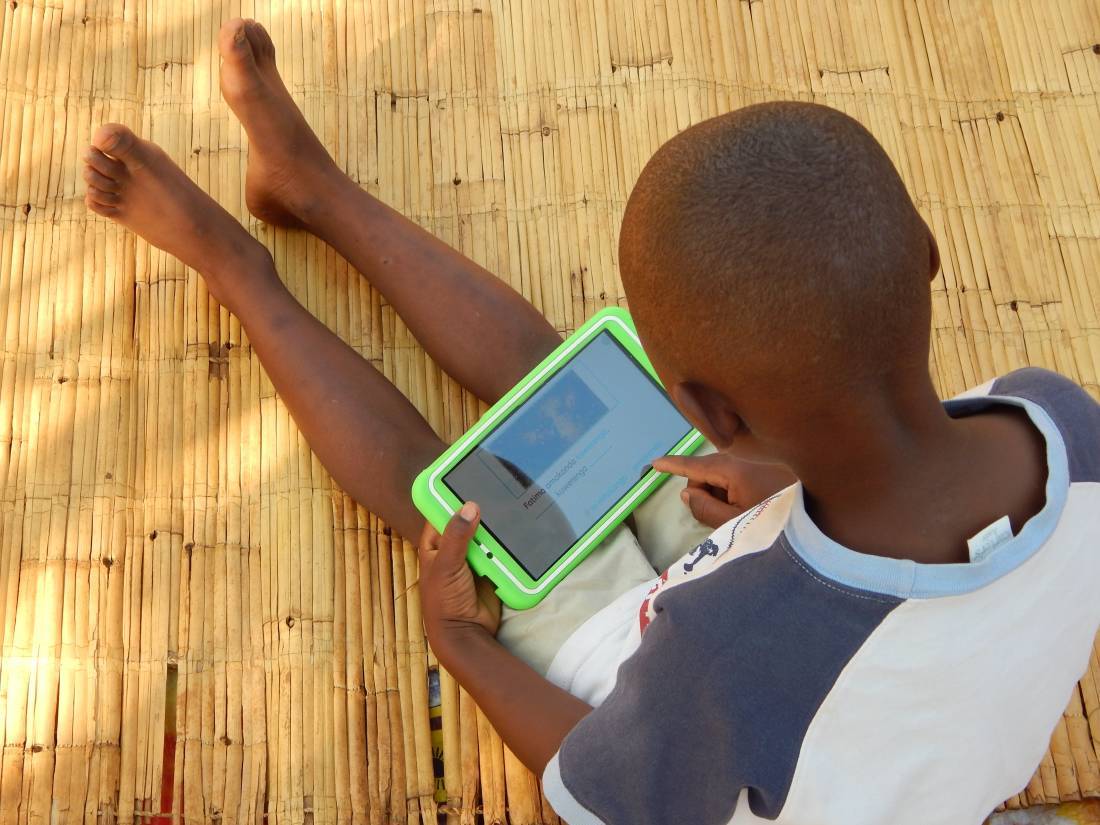
- The rise of distance learning could 'completely transform' how countries think about education.
In rural Sierra Leone, teenagers tuned into solar-powered radios for their lessons, while Kenyan students texted a code to receive free learning guides on their phones.
As Covid-19 shut Africa's schools, governments and charities rushed to make learning accessible to millions of pupils without Internet or even electricity, sparking innovations that could keep children learning long after the pandemic has passed.
"The situation... pushed all the governments and education ministries to think in a different way," said Elena Locatelli, an advisor on education in emergencies at the UN children's agency Unicef.
In a matter of months, officials set up distance-learning programmes, often via TV and radio, while charities and startups distributed devices and materials to supplement them.
Even as children now return to classrooms, many of the initiatives are set to continue for vulnerable children who struggle to attend school due to poverty or conflict.
Sub-Saharan Africa has the world's highest rate of out-of-school children, with about a third missing out on classes in 2018, according to the UN cultural agency Unesco.
"All these solutions... can also be used in situations in which children have no access to school due to conflict or insecurity, or for children that find themselves on the move," Locatelli told the Thomson Reuters Foundation.
The rise of distance learning could "completely transform" how countries think about education, said Sarah Smith from the International Rescue Committee (IRC), which has been developing audio lessons for refugee children.
"It could open up opportunities for formal education systems to welcome in things like a radio programme or a new app into their curriculum in a way they have been reluctant to do in the past," said Smith, senior education director at the IRC.
'Path of no return'
Education needs are particularly dire in Burkina Faso, where violence has forced one million people - more than one in every 20 inhabitants - to flee their homes. Terrorists wage frequent attacks across the country's northern scrublands.
Before coronavirus hit in March, 2,512 schools were closed because of the security situation, said Education Minister Stanislas Ouaro.
Although the government had talked about setting up distance learning, it took the pandemic to make it happen, he said.
"Coronavirus was also an opportunity for us," Ouaro said.
"We realised we could develop radio and digital classes that could be a response to the pandemic and to other types of crises, such as the security crisis and natural disasters."
Burkina Faso started broadcasting lessons on radio, television and online after closing all schools in March. Schools reopened for the new year on October 1, but radio classes are continuing for children in conflict-hit areas.
"For us, it's a path of no return," Ouaro said.
While distance learning cannot replace school, it will now be the go-to solution any time education is disrupted, he said.
The UN refugee agency (UNHCR) has backed national remote-learning programmes by distributing solar-powered radios, pens and notebooks in Burkina Faso, Mali and Niger - urging the countries to keep broadcasting lessons after Covid-19.
"We would like for next year to continue this activity and to organise some kind of listening groups. It can be in schools where schools can reopen, or it can be in the community where schools cannot reopen," said Charlotte Berquin, an education specialist for West and Central Africa at the UNHCR.
'Challenge and opportunity'
Even when children are in school, distance-learning solutions can help address challenges such as overcrowded classrooms, a lack of trained teachers and inadequate materials, said Yesani Kapanda, education programme manager for the charity Voluntary Service Overseas (VSO) in Malawi.
This is the aim of VSO's "Unlocking Talent through Technology" project, which provides solar-powered tablets with interactive courses for children to follow at their own pace.
The project started in five schools in 2014 but was scaled up during the pandemic to bring at-home learning to some 200,000 students in total. VSO ultimately hopes to integrate the use of tablets into all primary schools in Malawi.
"There is low absenteeism and dropout rates in the schools [where tablets are used] and the project has reduced the gender dynamics between girls and boys in the acquisition of numeracy and literacy skills," Kapanda said.
In Kenya, the charity Metis took another approach by distributing home learning guides in person and via text message and WhatsApp.
They estimate they were able to reach more than 30,000 students during the coronavirus lockdown with learning materials.
Students send the letters 'EDU' to a certain number and this triggers a series of questions to determine what content to send the learner, with lessons on school subjects including mathematics as well as gardening, storytelling and theatre.
Text-based learning is seen as a possible growth area too.
Eneza Education, an education technology social enterprise operating in Kenya, Ghana and Ivory Coast, opened its SMS platform without charge during lockdown, leading to its use by 2.2 million learners who did not have steady internet access.
The company has now launched in Rwanda with plans to assist more vulnerable students.
Metis co-founder Rebecca Ume Crook said she envisions the model being used long after the pandemic to provide children and caregivers who need support with learning ideas and creative materials.
"We have the challenge and the opportunity to reimagine education as a result of this pandemic, but we have to do so equitably," she said.








No comments :
Post a Comment